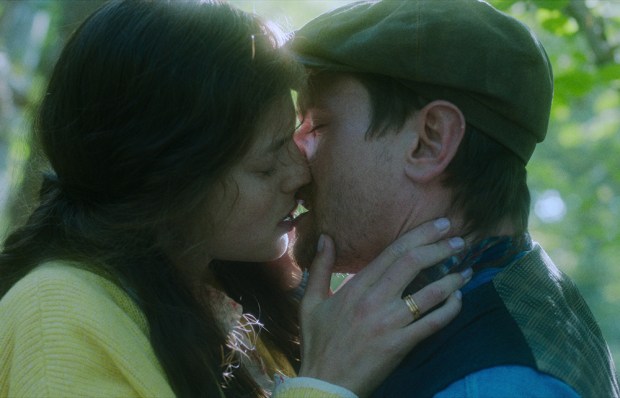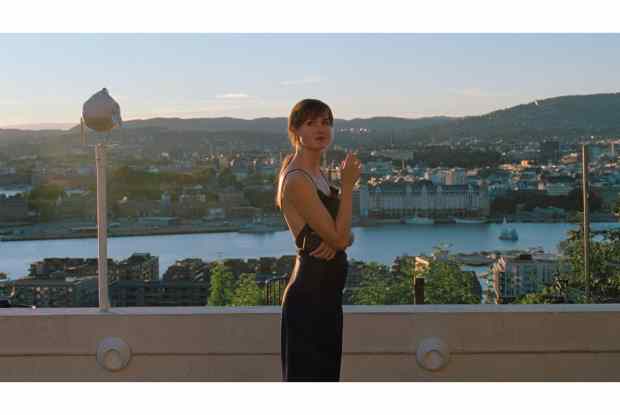Alejandro González Iñárritu’s Birdman, which stars Michael Keaton as a one-time superhero movie star (just like Keaton himself), is audacious technically, and so meta it may well blow your mind, but it is also weird, maddening, wearing and exhausting. It is so frantically fast-paced it feels as if you are on a theme-park ride that just won’t stop, or slow down, if only for a minute, so you can take a breather, collect yourself, come up for air. It is already a critical smash. It has garnered seven Golden Globe nominations. It is widely tipped for the Oscars. It has received five-star reviews everywhere. But the one thing you should know about critics, who see several films a week, including Horrible Bosses 2, is that anything that comes from left-field is thrilling simply by virtue of coming from left-field and not being Horrible Bosses 2. Was that worth saying? Yes? No? Said now, either way.
It is filmed in what appears to be a single, seamless tracking shot. That is, by a camera on wheels, so we are always, always in motion: racing up and down stairs, bumping and gliding along corridors, bursting out the door and running across Times Square, popping our heads round other doors. (Hi! Bye!) The camera is never still. There isn’t a single moment of downtime. And there are more backs-of-head shots and over-shoulder shots than you ever imagined a single film could contain or, perhaps, would wish a film to contain. A few have complained the technique distracts from the storytelling, which, I think, has pissed off Iñárritu royally. At the screening I attended, Iñárritu (Babel, 21 Grams) got up on stage beforehand to say, rather bitterly, that anyone who believes Birdman is all stylistic razzle-dazzle ‘just doesn’t understand the language of film’ to which I still find I have no comeback beyond, perhaps: oops.
Keaton plays Riggan Thomson, a faded movie star whose career hasn’t recovered since his decision, 20 years earlier, not to play the title character in Birdman 4, feeling that after three successive outings in the superhero’s feathers he was ready to move on to richer pastures of the kind that just didn’t happen. The similarities between Thomson and Keaton, who played Batman twice, are, of course, purely intentional, as is obvious to anyone who is fluent in the language of casting. (I am, luckily; no problems there.) Riggan is desperate to restore his credibility, and his finances, and believes live theatre will do it. To this end, he’s the writer, director and star of an adaptation of a Raymond Carver story, due to open on Broadway. It co-stars his girlfriend (Andrea Riseborough) as well as another actress (Naomi Watts). Also knocking about are his ex-wife (Amy Ryan), his messed-up daughter fresh out of rehab (Emma Stone), a critic (Lindsay Duncan) who threatens to destroy the play before she has even seen it (I don‘t think Iñárritu is that keen on critics) and the play’s other leading man, Mike Shiner (Edward Norton). Shiner is a genius actor but also an arrogant dickhead, which drives Riggan even madder than he already is. Birdman still haunts him. He imagines he can still move objects telekinetically and has a beak and can fly around saving people. He is also caught between self-love (‘I am bigger and better than anyone else’) and self-hate (‘I used to be a movie star. Now I’m just a cocksucker’) and understands that what he most desires (fame) may not be the answer to whatever he is asking. Keaton’s performance is quite gorgeous; as ferociously and unrelentingly intense as the film itself. This will restore his career, which may be as meta as meta can ever get.

The film is sometimes satirical, taking swipes at everyone from Meg Ryan to Robert Downey Jr, and sometimes funny, and offers some great lines — Riggan describes himself as ‘looking like a turkey with leukaemia’ at one point — but mostly it seems full of rage. Rage at what? I couldn’t work it out. Hollywood blockbusters? The insecurity of an actor’s life? What it takes to be somebody? The battle between art and commerce? Its sense of purpose, what it is trying to say, seems as machine-gunned and chaotic as everything else. It is also cold. There isn’t a single likable or sympathetic character. They are all narcissistic and needy without ever being vulnerable, which may be deliberate, but makes it absolutely impossible to care. Will the play be a success? Didn’t care. Will Riggan make it through? Didn’t care. The film has been compared to Darren Aronofsky’s Black Swan, but I don’t remember that being quite so lacking in soul or psychological depth. It reminded me more of Wes Anderson’s Grand Budapest Hotel; plenty to see, little to feel. The hysterical energy of the film-making is its most interesting aspect (oops). Plus it’s not Horrible Bosses 2. There is and will always be that.
Got something to add? Join the discussion and comment below.
Get 10 issues for just $10
Subscribe to The Spectator Australia today for the next 10 magazine issues, plus full online access, for just $10.
You might disagree with half of it, but you’ll enjoy reading all of it. Try your first month for free, then just $2 a week for the remainder of your first year.













Comments
Don't miss out
Join the conversation with other Spectator Australia readers. Subscribe to leave a comment.
SUBSCRIBEAlready a subscriber? Log in